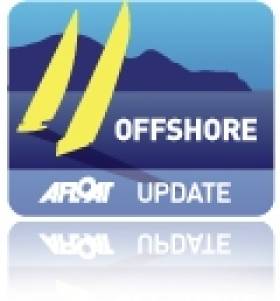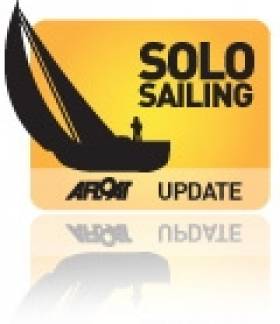Displaying items by tag: Alex Thompson
#hugoboss – Alex Thomspon's Hugo Boss Yacht that called into Cork Harbour marina en route to New York from Southampton in late April has broken its mast during the Atlantic Crossing.
Last Friday morning whilst sailing upwind at 25 knots, the team progress to New York has been interrupted when their mast broke. The reason for the broken mast is currently unknown; however, the on-board team, which includes skippers Alex Thomson, Pepe Ribes, Ryan Breymaier and crewmember, Willy Altadill are all safe and have stabilized the mast. Alex has reported that there is no damage to the boat or sails and they will continue to Newport, Rhode Island. T
The broken section has been secured and the boat is able to sail with the remaining mast and they are on route to Newport RI. At the moment our intention is to make a suitable repair to allow Pepe and Ryan to take part in the New York to Barcelona Race race but until the boat is in port and fully assessed we cannot finalise our plans.
The team website says: 'the mast was broken above the top spreader. We are relieved to announce that the four crew members on-board are safe and we have notified their families and our sponsors'.
In April, the Open 60 made a surprise visit to Cork Harbour Marina in Monkstown Bay, giving some 50 local junior sailors a tour of the vessel - and hopefully inspiring their future in offshore racing.
Skipper Alex Thomson said he and his crew were not far off Land's End in Cornwall after a leak discovered in the starboard ballast tank required overnight repairs.
But rather than sail back to Falmouth, Thomson reckoned they could find a suitable deep-water berth on Ireland's south coast.
A few phone calls later from the team's business manager (and Corkonian) Stuart Hosford, and they had a place waiting for them in Monkstown Bay, which can boast of over eight metres of water at low tide - more than enough for a vessel of Hugo Boss' stature.
Mast Walk Video By Alex Thompson
British yachtsman Alex Thompson has produced a stunning new promotional video, this time round Thompson walks up his boat's 30–metre high mast. It takes some control to keep a boat in that position so the stunt could be performed.

























































